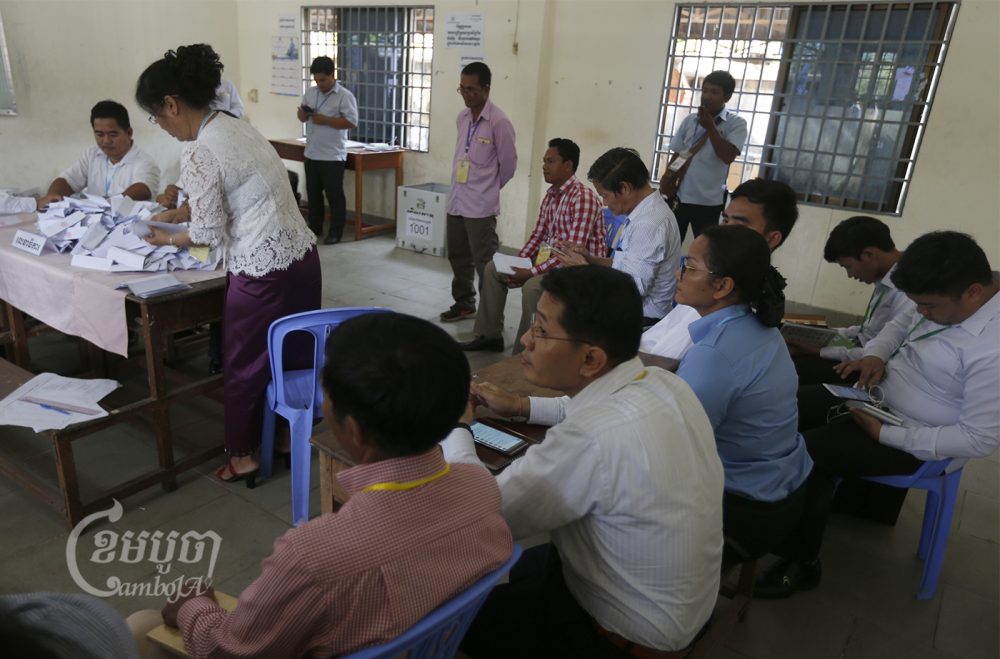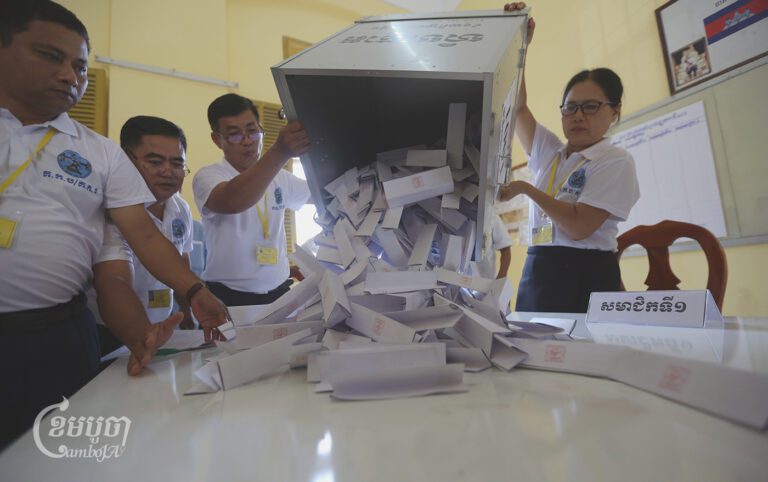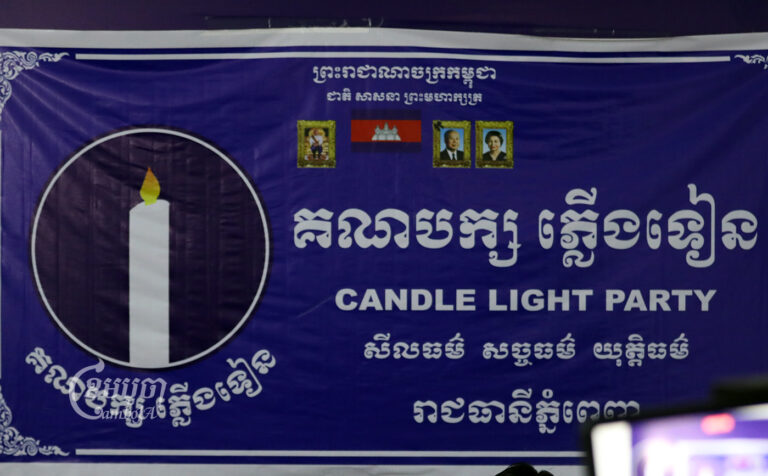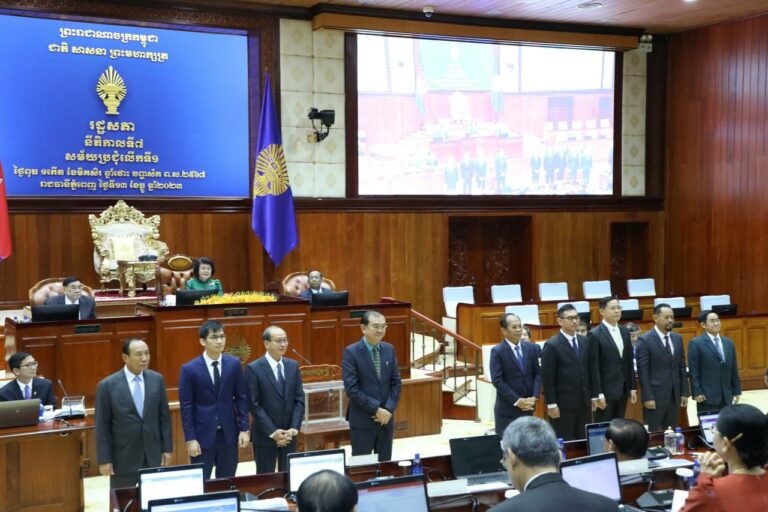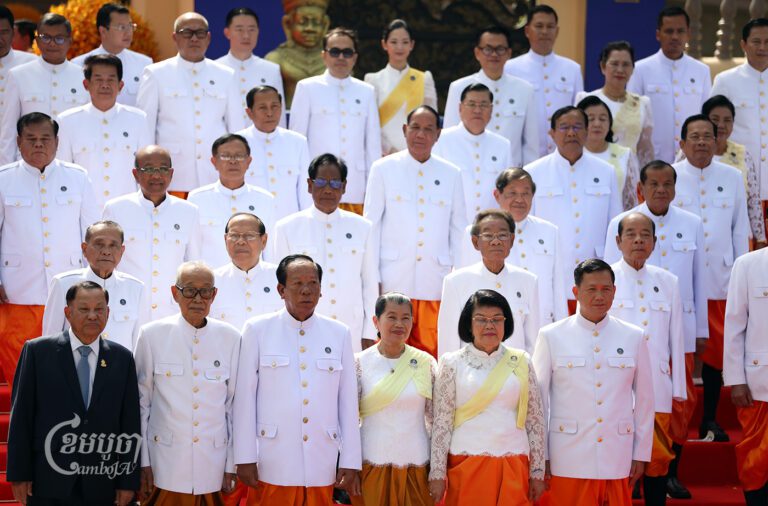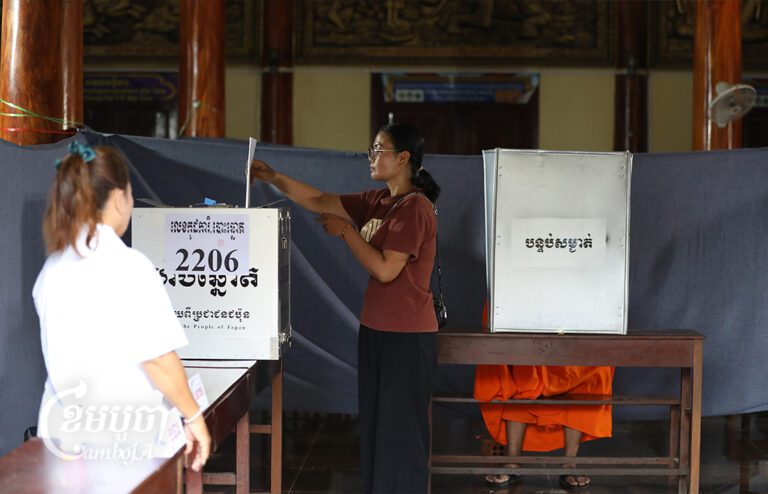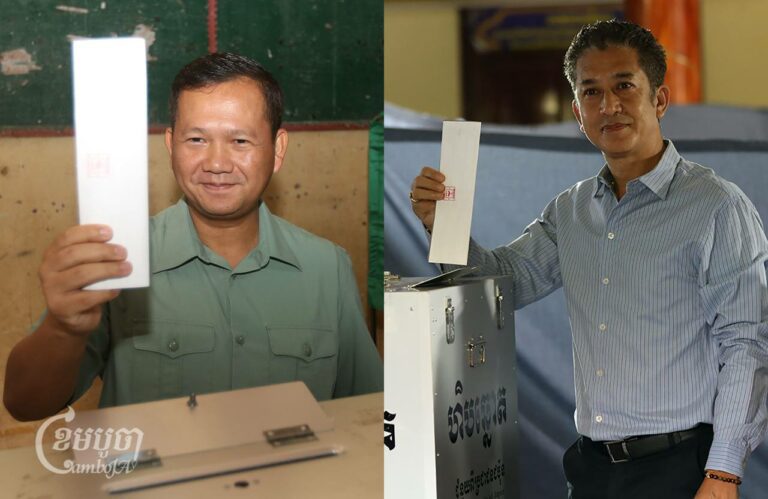Electoral observer organizations and minor political parties reporting difficulties fielding monitors for the June 5 polls have expressed concern about the integrity of the election.
The National Election Committee (NEC) reported that by May 16, there were more than 88,050 observers from 17 political parties registered to monitor the election. There are also 46,980 independent monitors from civil society organizations and another 190 from both national and international media.
In total, there will be 23,611 polling stations nationwide where voters may cast their ballots.
Sam Kuntheamy, executive director of the Neutral and Impartial Committee for Free and Election in Cambodia (NICFEC), said electoral observers play an important role in monitoring the election process, especially in counting ballots.
However, opposition groups have pointed to a lack of enough volunteer observers due to the challenges of minimal finances and political pressure.
“I am very worried about election results because I don’t have enough observers in the provinces [at each polling station] due to a lack of budget to support observers,” Kuntheamy said, adding that his organization has only 21 observers in Phnom Penh.
He said he will cooperate with other organizations and political parties to monitor the process. Still, Kuntheamy is concerned that on polling day “we won’t have enough reports, including no regular election result.”
The only ruling Cambodian People’s Party (CPP) has 23,602 observers in all polling stations, followed by the Candlelight Party with 20,338 observers, while other minor parties have about 10 percent to deploy observers.
Candlelight Party vice president Son Chhay has also complained of the difficulty in finding party observers, given what he described as the persecution and intimidation of those who have joined the opposition.
“It is not easy to find electoral observers because they were intimidated [by local authorities] with the removal of IDPoor, including withholding public service,” he said.
Sam Inn, secretary-general of the Grassroots Democratic Party, echoed this difficulty in finding observers and said the public is afraid of engaging with political issues. He noted his party only has 233 observers to monitor polling stations where its candidates are vying for commune council seats.
“We can’t put observers at all polling stations because people are still afraid,” Inn said. “We are concerned for the election day with counting ballots because we do not have enough observers.”
Meanwhile, Run Meatra, the spokesman of the Khmer National United Party, shared similar problems with inadequate election observers. Without observers at all polling stations, Meatra said the transparency of the contest could be compromised.
“[We] have not deployed observers in all polling stations, and are worried that can’t see with our own eyes, in case irregularities happen,” he said
Meatra said his party will cooperate with national and international observers who have joined to monitor the election.
Representatives of other opposition parties expressed fewer concerns to CamboJA.
Nhoeun Raden, spokesman for Funcinpec, said the royalist party is not too concerned with a lack of observers because there are many volunteers from civil society groups. He also said the parties themselves can monitor the contest, adding that Funcinpec has 2,744 observers.
“For the Funcinpec party, there is no problem, because all parties are involved, especially political parties that have deployed their observers, so we can accept election results,” he said.
Khoeuy Sinoeun, vice president of the Cambodia National Love Party, said his own organization has registered 1,862 observers.
“We hope that the election will be carried out without intimidation against political activists, as well as journalists who have participated to monitor,” Sinoeun said.
NEC spokesman Hang Puthea said the law has allowed political parties to field their own election monitors, and so any lack of observers is a problem related to their own resources.
Puthea said the NEC has rejected the opinion the election may lose integrity due to a lack of observers, saying that dissenting parties “want to favor their political interest.”
“It does not mean that if there aren’t observers that we can’t vote, because we have six officials from the NEC at each polling station that represent the legitimacy of the election,” Puthea said.
The spokesman said that any officials who act contrary to the principle of free and fair elections will face the law.
Political analyst Em Sovannara believes the national and international communities might criticize the upcoming election as neither free nor fair if it happens without support from all stakeholders.
“When there is a little bit of support, it will show that this criticism is not valid ahead of the election results,” he said.
The election process is democratic mechanism to promote a country that is walking the right path and human rights situation.
He said that accusations of wrongdoing from political parties may be more likely without sufficient monitoring at each polling station.


